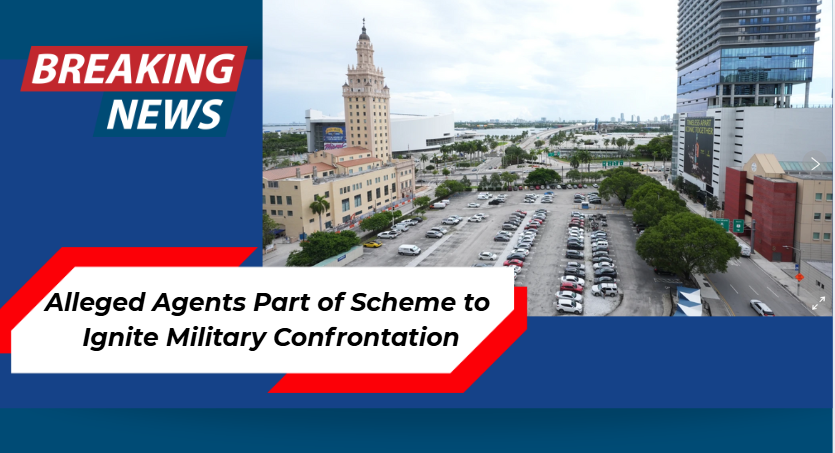In the latest chapter of Florida’s ongoing experiment in civic surrealism, a Miami judge has stopped the transfer of a three-acre patch of downtown land that was somehow, mysteriously, and perhaps inevitably—destined to become the site of Donald Trump’s presidential library.
The ruling by Circuit Judge Mavel Ruiz came after local activist Marvin Dunn suggested that Miami Dade College, the land’s previous owner, forgot a crucial step before donating a $67 million property to the state and, eventually, the Trump family: telling anyone.
“This is not an easy decision,” Judge Ruiz said, presumably aware that in Florida, no decision ever is. She clarified that her ruling “is not rooted in politics,” though she issued it in a state where “politics” has long been redefined as “anything that happens between sunrise and sunset.”
The land in question sits along Biscayne Boulevard, where glass towers rise like overconfident metaphors for capitalism. Developers have called it a “dream parcel,” which, in Miami, usually means “a place where someone’s dream will soon be bulldozed to make room for a parking garage.”
The college board approved the handoff in a blink-and-you’ll-miss-it meeting at 8 a.m. on September 23. The agenda mentioned something vague about “property,” but not that it was three acres of prime downtown real estate. The meeting was not livestreamed possibly to preserve the mystery.
One week later, Governor Ron DeSantis and his Cabinet (a phrase that always sounds faintly like a sketch comedy troupe) voted to pass the land along again, this time to the foundation organizing Trump’s future library. That foundation’s leadership roster reads like a family-group-text thread: Eric Trump, Michael Boulos (Tiffany Trump’s husband), and Trump attorney James Kiley.
Dunn’s lawsuit accuses the college of violating Florida’s Sunshine Law, which guarantees public access to government decision-making. The irony of the “Sunshine State” conducting multimillion-dollar transactions in the dark was, apparently, lost on the trustees.
Lawyers for the college argued that the board did nothing wrong. “There is no requirement under Florida law that there be specificity on notice,” attorney Jesus Suarez said, helpfully reminding Floridians that vague agendas are perfectly legal so long as you don’t ask too many questions.
Dunn’s attorney, Richard Brodsky, disagreed. “The people have a right to know,” he said, as if such a notion still had purchase in Florida’s administrative ecosystem.
For now, the judge’s injunction means the Trump Library will have to wait perhaps to be built elsewhere, perhaps never. Miami, meanwhile, remains Miami: a place where reality always arrives with a tan, a press release, and a faint whiff of absurdity.
%20(4).png)








